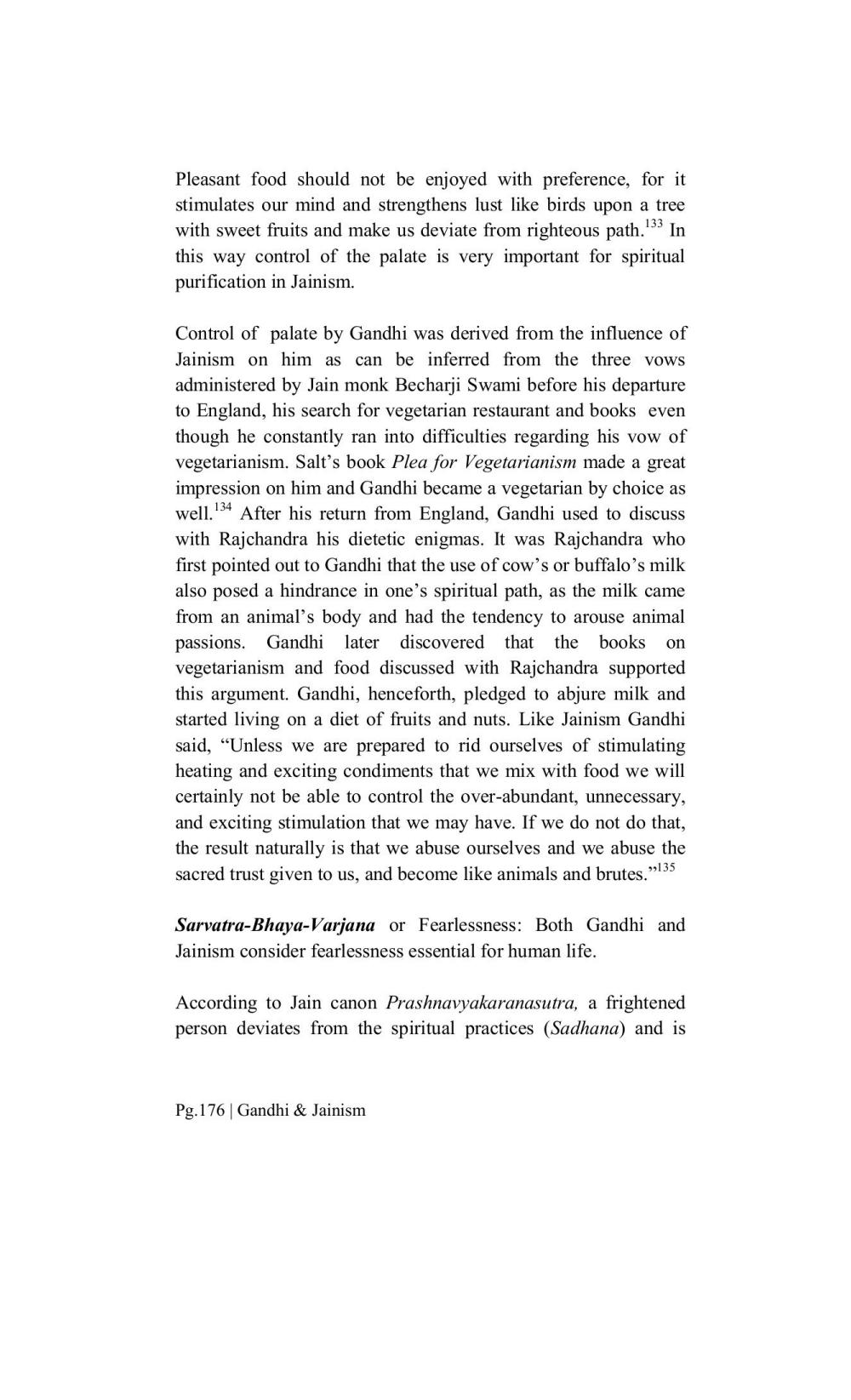________________
Pleasant food should not be enjoyed with preference, for it stimulates our mind and strengthens lust like birds upon a tree with sweet fruits and make us deviate from righteous path.133 In this way control of the palate is very important for spiritual purification in Jainism.
Control of palate by Gandhi was derived from the influence of Jainism on him as can be inferred from the three vows administered by Jain monk Becharji Swami before his departure to England, his search for vegetarian restaurant and books even though he constantly ran into difficulties regarding his vow of vegetarianism. Salt's book Plea for Vegetarianism made a great impression on him and Gandhi became a vegetarian by choice as well.134 After his return from England, Gandhi used to discuss with Rajchandra his dietetic enigmas. It was Rajchandra who first pointed out to Gandhi that the use of cow's or buffalo's milk also posed a hindrance in one's spiritual path, as the milk came from an animal's body and had the tendency to arouse animal passions. Gandhi later discovered that the books on vegetarianism and food discussed with Rajchandra supported this argument. Gandhi, henceforth, pledged to abjure milk and started living on a diet of fruits and nuts. Like Jainism Gandhi said, "Unless we are prepared to rid ourselves of stimulating heating and exciting condiments that we mix with food we will certainly not be able to control the over-abundant, unnecessary, and exciting stimulation that we may have. If we do not do that, the result naturally is that we abuse ourselves and we abuse the sacred trust given to us, and become like animals and brutes."135
Sarvatra-Bhaya-Varjana or Fearlessness: Both Gandhi and Jainism consider fearlessness essential for human life.
According to Jain canon Prashnavyakaranasutra, a frightened person deviates from the spiritual practices (Sadhana) and is
Pg.176 | Gandhi & Jainism




